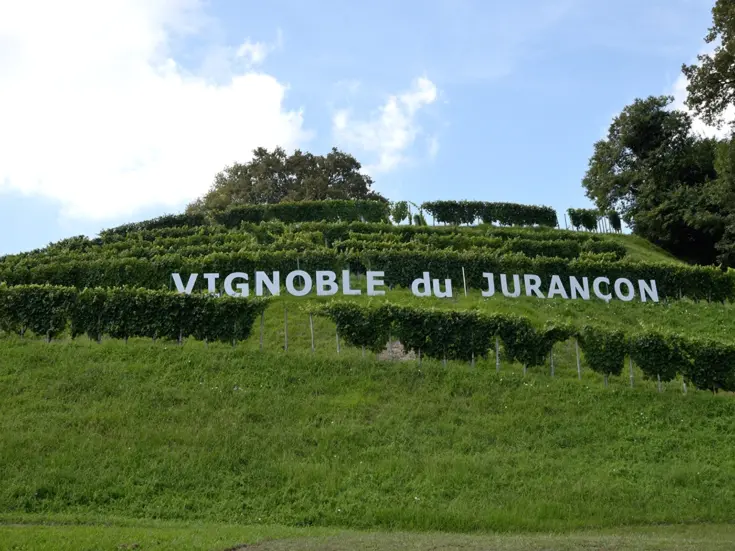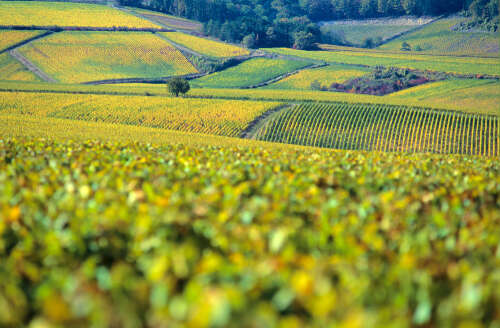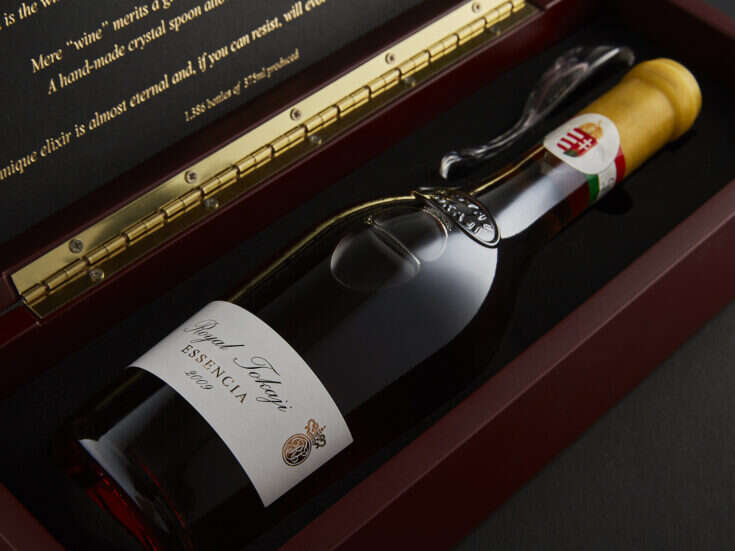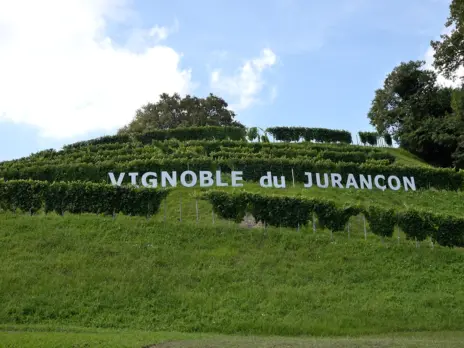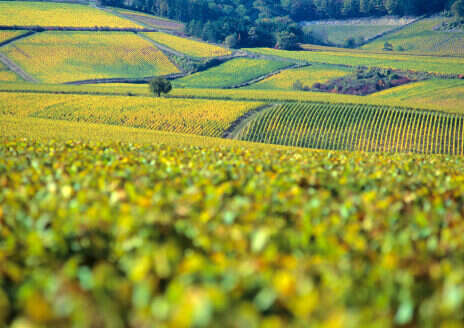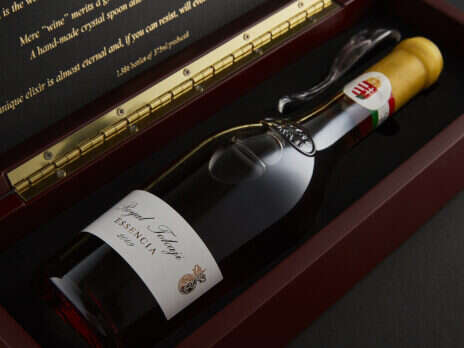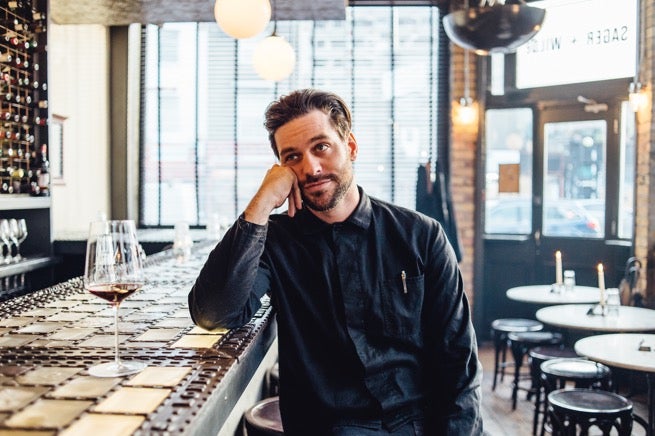
Owner and wine director of his eponymous restaurant and wine bar Sager and Wilde, Michael Sager chats to The World of Fine Wine. We delve into the historical context of wine, regions and producers that he draws upon for inspiration, and more. Sager is passionate about how wine should be sourced, in order to keep it as pure and simple as possible. Read on for our full Q and A.
What is your favorite part of being a sommelier?
The pushing of boundaries, such as when you surprise someone in a good way. They think they know what they want and know about the wine, but then you manage to take them out of their comfort zone to try something they didn’t initially want – and they really love it.
Normally people can feel looked down on when they’re in a restaurant and I don’t want that. If they leave and have learned something, and at the same time have enjoyed themselves without feeling embarrassed or looked down on, then I think that’s a success.
No one likes to part with money, do they? So they are coming in already slightly stressed or anxious about it and they put the pressure on themselves, and we try and take that pressure off in any way we can. Because [when you’re dining out] you’re not walking away with anything: it’s an experience, a luxury, it’s not as if you’re buying a set of headphones and you can walk away with those. It’s different: you leave and you have nothing left, but their money’s gone. And I always try to ensure that they feel good about that.
Are there any particular wine regions or countries that have inspired you most or most recently? How did they inspire you?
I like Austria. Actually Austria’s really expensive but it is really good. Other than Austria I also like Slovenia and Georgia. I really like their personality, they make some really exciting orange wines and they’re sort of the cradle of winemaking. They have such a history there; they are over 4,000 years old or something in terms of winemaking. So they are a lot more steeped in history than let’s say a country like Australia which is officially less than 500 years old. There’s nothing wrong with that, but I really enjoy the historical context of wine, and how the winemakers celebrate or rebel against history.
So would you say that history inspires you?
For me, yes, history inspires me. Wine is meant to transport you, if you place people or money in between that it takes the magic away.
Even for a short time only, wine is meant to transport you into a different world, remind you of a holiday you’ve been on or an emotive context. I prefer buying directly from the winemaker to keep it as simple and pure as possible. The fewer people in between, the more pure and the more connected you’re going to feel to the wine.
I personally think it should state on a wine list if a wine has been bought from auction or not. I think it’s more important than stating alcohol content or anything like that, as it’s essentially a freshness aspect, like an expiry date.
How do you create a three star wine list? What goes into making a three star wine list?
I would try and have vintage stuff that is sourced from impeccable sources, so not from auction.
The wine finds you. It’s a bit like art for that matter. You think, ‘What wine finds me, why am I emotionally attached to it and why should I get my guests to be emotionally attached to that wine?’ That’s what I hope for when I travel. I also might see something that friends whose palates I trust have posted on Instagram, such as friends in the USA. I’ll try and get that wine, buy 24 bottles without tasting it, and put it by the glass [at the restaurant]. Then I learn about that wine while my customers do – I already know the wine is good because it’s been drunk by the right people.
We all look to each other for inspiration and I think it’s incredibly selfish to say that I have the best palate and that’s why I can write a three star wine list – it’s not true; it’s more about being savvy, about what is right now.
The reason I emptied the wine list last year is because I realised that I didn’t really want to drink half of it or even 70% of it. I decided to run it all down – at the restaurant that is, we are known for a big list at the wine bar and people come there for that so we’ll keep that. Plus, I started thinking that, because of the stress you already have of choosing food, timings, and so on at a restaurant, the wine should make things as easy and smooth as possible.
This time if you come in, the only wine on there is a wine that I would drink. The moment the wine stops being something that I would go out and drink, it’s off the list. I also ask the staff what their favorite wine is. We still have the rarest wines to cater for the people who want them, we have a page of those that I just rotate and that I buy in single bottles.
I would personally love if the trend would finally go towards shorter wine lists. So sommeliers can do their work of being out on the floor helping people and having meaningful conversations with people so that they can get passionate about wine. I think a good sommelier should already have made those [wine] decisions for the guests before they come in. They don’t need five sommeliers or five different Chablis that will go with their fish, they need just one.
If you, the sommelier, think Chablis is the best choice to go with a particular dish, it really helps if you don’t have to think, which one of the 25 Chablis to choose? In my opinion anyway. It’s much harder to write a short wine list than a book.
I really like what you guys are doing [with the World’s Best Wine Lists]: in London we don’t have a Michelin star or anything because we chose to focus on wine. And having the recognition is helpful.
What are your wines of choice during summer?
I love light reds, I’m a red drinker. Funnily enough I actually drink more white during the winter because I like heavy whites. I don’t like light whites or heavy reds because it doesn’t go with the food that we’re selling, which draws upon Japanese fermentation techniques mixed with a Nordic approach to sourcing and plating – very local and hyper-seasonal. Creating and eating in this way, I’m not going to pair with it a Barossa Shiraz or any of those other oaky wines.
I would drink Beaujolais. If it was music it would be a wine that’s all in the high notes and no base: herbal flavor, an exciting red wine. It doesn’t have to be light in color but light in body. That could be Gamay, or something from the Savoie region in France, or light Italian wine.
I sometimes enjoy drinking wine from the Mediterranean coastline as I’d remember being there when I first drank that wine. But that’s more emotional so it’s not something that everyone can relate to. Quite often in summer I find myself drinking wines I’ve drunk in other summer environments, and in winter it’s the same. I would drink a Sauvignon because I’ve been twice in November to Sancerre and it reminds me of that misty, foggy environment, and then if it’s cold and miserable here [in London], the Sancerre is what makes me happy because it reminds me of that place. So it’s from memory and my own history.
For me there’s a producer who’s newish, his name is Clotaire Michal. There’s also a famous guy in the Rhône called Thierry Allemand, who’s probably one of the best winemakers in the world because he makes Syrah very well and the purity that comes from his vineyards is crazy. Thierry Allemand is iconic and really hard to get – I think only on allocation – and it’s a tiny production, I think there’s only 4 hectares [10 acres]. And Clotaire Michal was his assistant winemaker. When I found out that this guy’s making Beaujolais, I thought ‘I’ve got to get this.’ That was probably a year ago and we started bringing some in direct. It’s affordable, too, which means I can enjoy drinking it with my mates and no one feels out of pocket.
Which restaurants or wine bars do you visit when you are looking for a good list in your restaurant’s home city?
I like The Remedy in Central London. I enjoy 40 Maltby Street because I don’t always drink natural wines but I like that they import all the wines directly – they are importers as well as a restaurant – so there’s no one in between.
I also enjoy Brawn, which is near to Sager + Wilde in East London. I enjoy it for its wine and it’s where I go with my parents, as I know my parents will have a good experience: I can order myself a funky wine by the glass and they can go for a classic wine. They are also affordable and have the wine I want that’s not too expensive either.
I find the ultimate challenge of the restaurateur is to have the trifecta of these three things happening: service, drink, and food. Service should always be amazing; no matter how much you’re spending.
Honestly, I mostly go to my mates’ places just because I enjoy it. When I know someone at the restaurant I always have a better service experience. I also like to go to Noble Rot, and I really enjoy hanging out in East London because there’s a bit of a community spirit. London you can feel a bit lost in, but if you recognize that there’s a community in your neighborhood and you work closely with them, by you going to their restaurants and they come to yours all the time, then that’s how you build a community. Because in the end they will recommend my restaurant to their guests, and vice versa.
Are there young sommeliers who you believe will go on to achieve great things?
In the UK there are people who have done amazing things but are not sommeliers. Take Noble Rot, neither of them have been sommeliers before, where one is a wine merchant and the other working in music, now they have a magazine [and wine bar].
Xavier Rousset has just opened up this amazing place called Blandford Comptoir, it’s a smaller and better wine list that is, in my opinion, more personal. In my opinion he’s only now become the amazing sommelier that he was always meant to be. At 28-50 they were selling a lot of collector wines and they had a close relationship with a lot of collectors. But now he has a small place that he really believes in, with no other investors – it’s 100% him – and that’s why I think it’s beautiful.
There’s another guy who’s not really a sommelier, he’s a friend of mine and his name is Charlie Mellor. He was working at Brawn and at 40 Maltby Street – so two of my favorite wine bars – and he’s from Australia and he has an incredible passion for natural wines; he’s collected all this natural wine, which is really hard to find. A lot of people think natural wine cannot age because of the lack of sulfur but actually if they’re good enough wines then they can. He’s opening up a wine bar on Hackney Road, virtually on my front door, and I’m really excited. He’s opening that this autumn and whilst he’s not a sommelier he has worked in a sommelier capacity. He hasn’t worked in fine dining, but I really don’t think the word sommelier applies for wine bars; they’re just normal people who have a huge knowledge about wine but they’ve never worked in fine dining.
And as far as wine people go, I think this guy Charlie Mellor will do an amazing wine place on Hackney Road. He will further strengthen our East London community – all we want to do in East London is prove to the rest of the UK that we matter. Because that will finally mean that people are okay spending a certain amount on food, which they are in Soho. In East London we really don’t have that guaranteed tourist footfall so we really have to be good. I’m personally inspired by the restaurants that open nearby that come out of nowhere and establish themselves to achieve their first Michelin star in the first year; and to be in the World’s 50 Best Restaurants in the same year, I think it’s a huge achievement.
What inspiration do you take from The World of Fine Wine magazine?
It’s really quite scientific; I use it as a source of knowledge. I love the way it’s written, it’s quite in depth, you can’t really read it on the tube. You know, I actually just purchased from someone every back issue, so I now have the whole catalogue, which is really exciting because I only started with it one and a half years ago, so I wanted everything from before. So I can’t actually answer that because I’ve only read about seven of them.
But what I do like about them is that they are an antithesis to what Noble Rot did. Noble Rot is quirky, nice illustrations and fun, and it goes down the more cultural angle, such as interviews with musicians or actresses about what wine they’re drinking, or go to cool restaurants in Copenhagen and review them – it’s cool. Whereas with yours [The World of Fine Wine], what I like is that it’s my own window to the world that I’m a part of, which is fine wine. I enjoy it and I like to be a part of it, and if I can’t always indulge in the fine wine world, it makes me savvy and educated enough to talk to my guests about the wine that I’m selling, because I’m learning. For me it’s purely educational. I don’t like to read reference books and I can look it up on the internet now, so what I do like with this is that there’s a narrative – a story – that I can then tell. That’s the inspiration: storytelling. Something where I can turn around to a customer and tell them a story.
What do the wine awards mean to you? How has this affected you and your establishment?
I actually don’t know, because it’s not like we figure out who books because of it and who doesn’t. Also, London is a big city and I’m not sure if someone in The World of Fine Wine demographic, if they live in London, if they go to East London or not, or if they hang out in Mayfair or Marylebone [instead].
I have a very small circle in the wine world and we will recommend each other’s restaurants – that’s why Americans end up coming here – but I’m not sure what is happening because of The World of Fine Wine awards. What I do really like about it is that it adds credibility, and it’s really awesome.
What I also like with your publication is that it transports my list into a globally relevant list. That’s what I’m aiming to do. I don’t want to be provincially relevant; I want people to travel to drink at mine. And you guys are helping me to tell people about that, which is really important.
It’s getting the word out there, isn’t it?
That’s right, like you said it’s just as important as the Michelin stars, and all I know is that the Michelin stars have been really important for my mates who have got them. Their restaurants went from being really difficult to run and quiet, to being super busy. So I hope it’s going to have a really good impact on the restaurant, and that you guys, whichever way you’re doing it, manage to get even more traction than you have done so far. I hope that any wine drinker in the world starts taking this seriously because it would mean a lot for me. You know what; it’s a really good reflection of who have good wine lists, it’s the only one out there.
Now for a few pairings…What wines would you say pair the best with turkey?
Light red like solid Cru Beaujolais
What wines pair the best with beef?
I am not a fan of oaky big red with beef. I prefer Old School Syrah fermented in old oak. The tannins counterbalance the fat in the beef beautifully.
Who do you think the best sommelier in the world is?
Rajat Parr, although he’s not working as a sommelier anymore.
And who do you think is the best in the UK?
I think Raphael Rodriguez from Fera at Claridge’s – he did an interview last year, having a three star wine list in 2015 – he is probably the best sommelier in this country in my opinion. He will open an amazing wine bar when he has the money to do so, that’s what he’s aiming to do. So I think he’s probably going to stay at Fera at Claridge’s for another half a year, until they get their second Michelin star, and then he will want to open his own spot. And that’s what I’m really excited about, I’m really excited about what he’s going to do.
Who is the most influential sommelier ever to have lived?
Larry Stone and Daniel Johnnes, both American.
What is your go-to celebratory sparkling wine/Champagne? And for non-alcoholic?
I love Chartogne-Taillet Cuvée St-Anne, it’s great value wine from an amazing, talented, and young winemaker.
For non-alcoholic, I love all the fermented drinks and shrubs our bar manager Marcis Dzelzainis comes up with.
What is the best bottle of wine you’ve ever tasted?
OUCH! Tough one. A bottle of 2007 Prieuré-Roch Nuits-St-Georges Vieilles Vignes. By myself on Mount Etna in May 2015.
What is the rarest wine you’ve ever tasted?
Again a tough one, I am very lucky to be able to try a lot of rare wine. Probably not well known, but a rare wine nonetheless, is Clotaire Michal St-Joseph. He only made it for a few years and then couldn’t afford to do so anymore and relocated to Beaujolais. LOVE that wine. As I mentioned, Clotaire happens to have worked for one of my favorite producers, Thierry Allemand.
OH, WAIT!
Just remembered, 1900 Clos Rougeard Le Bourg, in a remote restaurant in the Loire in 2014. Yes, that’s the one!
